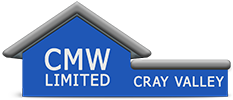
Introduction
When it comes to construction or DIY projects, the importance of choosing suitable screws and fixings cannot be overstated. From holding together furniture to anchoring heavy machinery, the choice of fasteners plays a crucial role in the stability and longevity of any structure. However, with many available options, selecting the appropriate fasteners can often take time and effort. In this comprehensive guide, we'll delve into the world of screws and fixings, exploring the different types, their uses, and how to choose the right ones for your specific needs.
Types of Screws and Fixings
Wood Screws
Wood screws are designed for use in wood or wood-based materials.
They have coarse threads and a sharp point, making them ideal for gripping into wood fibres.
Common types include flat heads, round heads, and countersunk screws.
Applications: Furniture assembly, carpentry, decking, and framing.
Machine Screws
Machine screws are designed to be used with nuts or tapped holes.
They have finer threads compared to wood screws and are often made from metal.
Available in various head types such as pan head, flat head, and oval head.
Applications: Machinery, electronics, automotive assembly, and metal-to-metal fastening.
Self-Tapping Screws:
Self-tapping screws have a sharp, pointed tip and a unique threading design that allows them to tap their hole as they are driven into materials.
They are commonly used in metal and plastic applications where pre-drilling may be complicated or unnecessary.
Types include pan head, flat head, and hex head self-tapping screws.
Applications: Sheet metal assembly, plastic fabrication, HVAC installation.
Anchors:
Anchors are fasteners that attach objects to surfaces that cannot support the weight independently.
Common types include expansion anchors, toggle bolts, and concrete anchors.
They come in various materials, such as plastic, metal, and nylon.
Applications: Wall mounting, securing heavy objects, hanging shelves or cabinets.
Rivets
Rivets are permanent mechanical fasteners that consist of a cylindrical shaft with a head on one end.
They are used to join two or more materials together by deforming the shaft to form a second head.
Common types include solid rivets, blind rivets, and pop rivets.
Applications: Aircraft assembly, automotive manufacturing, structural applications.
Choosing the Right Fasteners
Material Compatibility
Consider the material of the surfaces being joined. Different materials require different types of fasteners. For example, wood screws are suitable for wood, while self-tapping screws are ideal for metal and plastic.
Load-Bearing Capacity
Determine the weight or load the fasteners will need to support. Choose fasteners with sufficient strength and size to withstand the expected load without failing.
Environment
Consider the environmental conditions the fasteners will be exposed to, such as moisture, temperature fluctuations, and corrosive elements. For outdoor or high-moisture environments, use corrosion-resistant materials like stainless steel or galvanized coatings.
Installation Method
Evaluate the installation method required for the fasteners. Some may require pre-drilling or special tools, while others may be self-tapping or easily installed with common household tools.
Aesthetic Considerations
Take into account the fasteners' aesthetic appearance, especially if they will be visible. Choose fasteners that complement the overall design and aesthetics of the project.
FAQs
What are the most common types of screws and fixings?
Common types include wood screws, machine screws, self-tapping screws, anchors, and rivets.
How do I choose the correct screws for my project?
Consider material compatibility, load-bearing capacity, environment, installation method, and aesthetic preferences.
What type of screws should I use for outdoor projects?
Opt for corrosion-resistant materials like stainless steel or galvanized screws to withstand outdoor elements.
Can I use the same screws for metal and wood?
While some screws may work for both materials, it's best to use screws specifically designed for the material you are working with to ensure proper grip and durability.
Are there special considerations when using screws in drywall?
Yes, use drywall screws specifically designed for drywall installation to prevent damage and ensure a secure hold. Make sure to drive the screws into the studs for maximum stability.
Conclusion
Selecting suitable screws and fixings is essential for the success and durability of any construction or DIY project. By understanding the different types of fasteners available, their applications, and factors to consider when choosing them, you can ensure your project is built to last. Whether you're assembling furniture, constructing a building, or hanging a picture frame, the right choice of fasteners will make all the difference in the stability and longevity of your project. So next time you embark on a project, remember to choose your screws and fixings wisely for a job well done.
If you want to take a closer look at our range of screws and fixings, click here. If you want to contact or find out more about this blog posts author, Dave click here.
